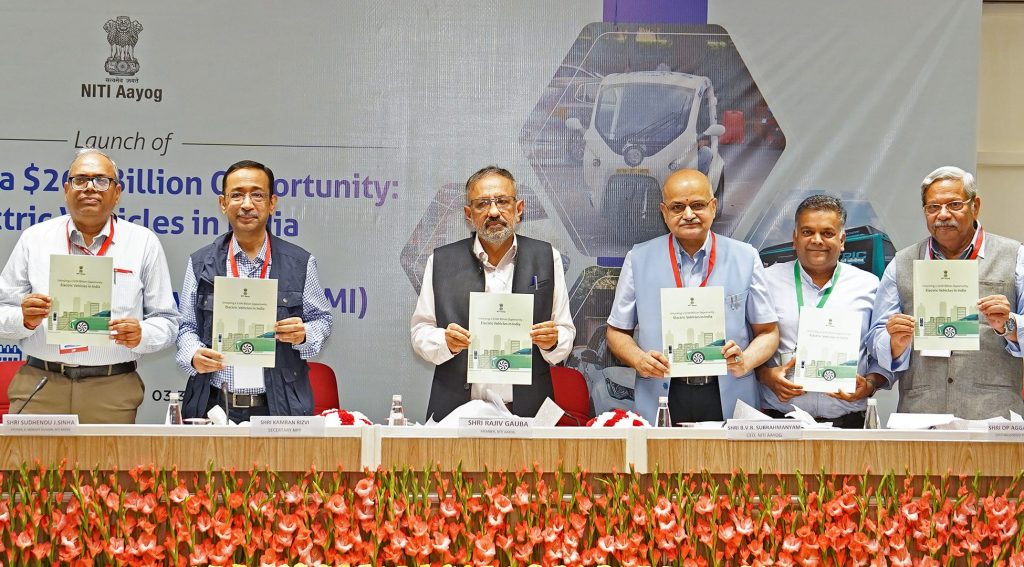NITI Aayog has launched the India Electric Mobility Index (IEMI), a pioneering and first-of-its-kind tool designed to comprehensively track, evaluate, and benchmark the progress of all Indian States and Union Territories (UTs) in transitioning toward electric mobility.
The IEMI scores states and UTs out of 100 based on 16 indicators grouped under three core themes:
- Transport Electrification Progress: Measuring demand-side adoption of electric vehicles (EVs).
- Charging Infrastructure Readiness: Assessing the development of allied charging infrastructure.
- EV Research and Innovation Status: Capturing supply-side ecosystem research, development, and innovation efforts.
While Delhi, Maharashtra, and Chandigarh emerged as frontrunners in overall EV adoption, with Haryana, Karnataka, Ladakh, and Himachal Pradesh leading in charging infrastructure readiness. Delhi, Tamil Nadu, Maharashtra, Karnataka, Haryana, and Telangana stand out in EV research and innovation.
India targets to achieve a 30% share of electric vehicles in total vehicle sales by 2030. As of December 2024, there are over 25,000 public EV charging stations in the country. India’s EV market has witnessed rapid growth, with sales increasing from 50,000 units in 2016 to 2.08 million units in 2024. Global EV sales rose from 918,000 in 2016 to 18.78 million in 2024. EV penetration in India improved from one-fifth of the global share in 2020 to over two-fifths in 2024.
NITI Aayog also released a comprehensive report titled “Unlocking a $200 Billion Opportunity: Electric Vehicles in India,” identifying barriers and strategic measures essential for accelerating India’s EV transition.
The IEMI dashboard and report are publicly accessible, providing a transparent framework for states to benchmark their progress, identify gaps, and learn from each other.
This Index represents a critical step toward a decarbonized, energy-secure future, highlighting the significance of proactive state actions in shaping India’s clean mobility ecosystem and achieving net-zero emissions by 2070.
States are central to India’s ambition of reducing transport sector emissions and achieving net-zero by 2070. Proactive state-level action is therefore key to designing tailored policies, deploying supportive infrastructure, and ensuring the benefits of e-mobility reach all communities and geographies equitably.
Launching the IEMI dashboard and Report, Rajiv Gauba, Member, NITI Aayog, said that “The IEMI provides a transparent, comparative framework to assess progress across key themes such as electrification, infrastructure, and innovation. It enables states to benchmark their efforts, identify gaps, and learn from each other’s successes.”
BVR Subrahmanyam, CEO, NITI Aayog, added that, “NITI Aayog has already been at the forefront of enabling the ongoing EV revolution. This index is yet another effort by NITI Aayog to propel India towards its vision of a decarbonized and energy-secure future.”
The Report was released by Rajiv Gauba, Member, NITI Aayog, in the presence of BVR Subrahmanyam, CEO, NITI Aayog, Kamran Rizvi, Secretary, M/o Heavy Industries; OP Agarwal, Distinguished Fellow, NITI Aayog and Sudhendu Sinha, Programme Director – E-Mobility, NITI Aayog, among other dignitaries.











